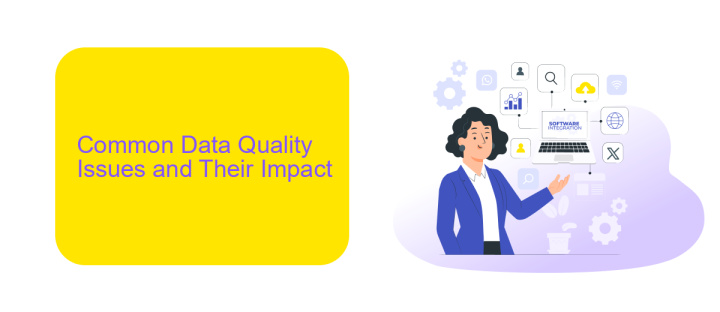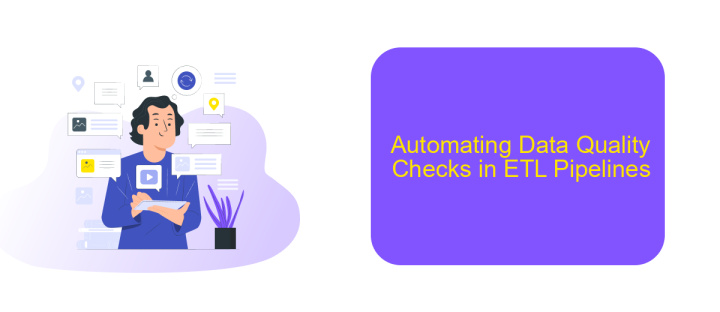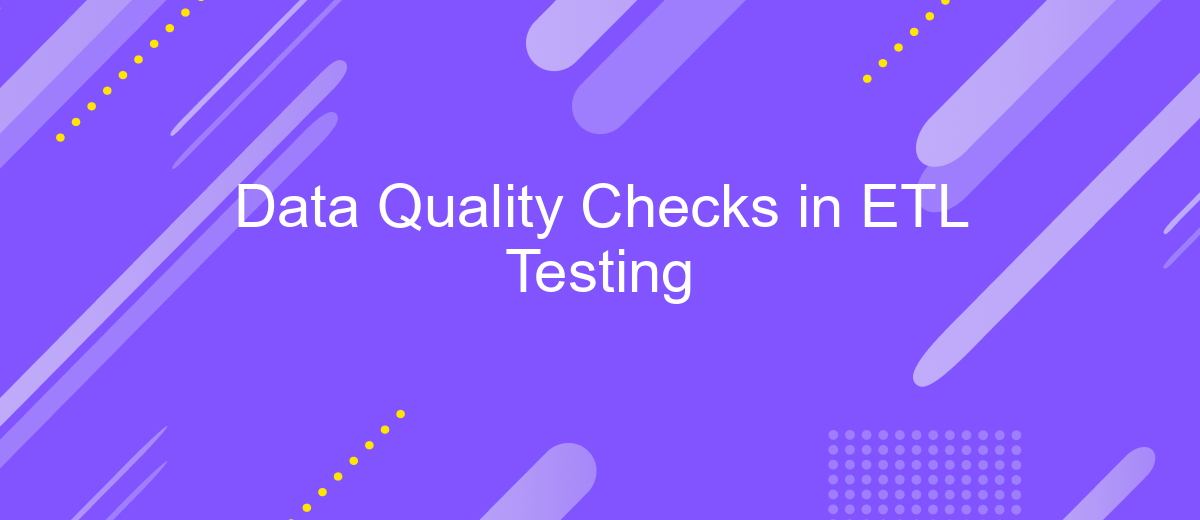Data Quality Checks in ETL Testing
In the realm of data warehousing and business intelligence, ensuring data accuracy and reliability is paramount. Data quality checks in ETL (Extract, Transform, Load) testing play a crucial role in validating the integrity, consistency, and completeness of data as it moves from source to destination. This article explores essential data quality checks that help maintain high standards in ETL processes.
Introduction to Data Quality Checks in ETL Testing
Data Quality Checks in ETL testing are crucial to ensure the accuracy, consistency, and reliability of data being transferred from source systems to the data warehouse. These checks help identify data issues early in the ETL process, minimizing the risk of data corruption and ensuring high-quality data for analysis and reporting.
- Completeness Check: Ensures all expected data is loaded into the target system.
- Uniqueness Check: Verifies that records are unique and there are no duplicates.
- Consistency Check: Confirms that data remains consistent across different systems and stages.
- Accuracy Check: Ensures data values are correct and match the source data.
- Timeliness Check: Validates that data is up-to-date and reflects the current state of the source system.
Implementing robust data quality checks can be simplified using integration services like ApiX-Drive, which automate data transfer and validation processes. By leveraging such tools, organizations can streamline their ETL workflows and maintain high standards of data quality, ultimately leading to more reliable business insights and decision-making.
Common Data Quality Issues and Their Impact

Data quality issues are a common challenge in ETL testing, often leading to significant impacts on business operations. One prevalent issue is data inconsistency, where data from different sources does not match or align properly. This can result in inaccurate reporting and misguided decision-making. Another common problem is data duplication, which can inflate storage costs and cause confusion in data analysis. Missing data is also a critical issue, as it can lead to incomplete analyses and unreliable outcomes.
The impact of these data quality issues can be profound, affecting everything from daily operations to strategic planning. For instance, inaccurate data can lead to erroneous business insights, ultimately affecting the bottom line. Moreover, resolving these issues can be time-consuming and costly. Utilizing integration services like ApiX-Drive can help mitigate these problems by automating data transfers and ensuring data consistency across different platforms. By implementing robust data quality checks and leveraging reliable integration tools, businesses can significantly enhance the accuracy and reliability of their data.
Techniques for Performing Data Quality Checks

Performing data quality checks in ETL testing is crucial to ensure the accuracy and reliability of data. These checks help identify and rectify errors before data is used for analysis and decision-making.
- Data Completeness: Verify that all expected data is loaded into the target system. This includes checking for missing rows or columns.
- Data Accuracy: Ensure that the data values are correct and consistent with the source data. This may involve comparing sample records from the source and target systems.
- Data Consistency: Check for data uniformity across different datasets. This can be done by validating that the same data is represented in the same way across multiple tables or databases.
- Data Integrity: Validate that relationships between different data elements are maintained. This includes checking foreign key constraints and referential integrity.
- Data Timeliness: Ensure that the data is up-to-date and reflects the most recent information. This involves checking timestamps and date fields for currency.
Tools like ApiX-Drive can simplify the process of integrating data from various sources, ensuring that data quality checks are performed efficiently. By automating data flows and transformations, such services help maintain high data quality standards, making ETL testing more robust and reliable.
Automating Data Quality Checks in ETL Pipelines

Automating data quality checks in ETL pipelines is crucial for ensuring the reliability of data. Automation minimizes human error and accelerates the validation process, making it more efficient and consistent. By integrating automated checks, organizations can maintain high data quality standards without extensive manual intervention.
To automate data quality checks, it's essential to incorporate robust tools and frameworks into your ETL pipelines. These tools can automatically validate data against predefined rules and criteria, ensuring that any discrepancies are flagged immediately. Leveraging automation also allows for continuous monitoring and real-time alerts, which can significantly reduce downtime and data-related issues.
- Implement data validation rules and constraints.
- Use automated tools for data profiling and anomaly detection.
- Integrate with services like ApiX-Drive for seamless data integration.
- Set up real-time monitoring and alerting systems.
By automating data quality checks, organizations can ensure that their ETL pipelines are robust and reliable. Tools like ApiX-Drive facilitate seamless integration and automation, allowing for a more streamlined and efficient data management process. This not only enhances data quality but also frees up resources for more strategic tasks.
Best Practices for Effective Data Quality Checks
Implementing effective data quality checks in ETL testing requires a strategic approach to ensure accuracy and reliability of data. Firstly, establish clear data quality criteria, such as completeness, consistency, accuracy, and timeliness. This involves defining acceptable thresholds and metrics for each criterion. Regularly reviewing and updating these criteria helps in maintaining relevance and effectiveness as data sources and business requirements evolve.
Secondly, automate data quality checks to enhance efficiency and reduce manual errors. Utilize tools like ApiX-Drive to integrate various data sources seamlessly and automate the validation processes. This not only saves time but also ensures that data quality checks are consistently applied across all datasets. Additionally, maintain detailed documentation of all data quality procedures and results. This transparency supports troubleshooting and continuous improvement efforts. By following these best practices, organizations can significantly improve the reliability and integrity of their ETL processes.
FAQ
What is Data Quality in ETL Testing?
Why is Data Quality important in ETL Testing?
What are common Data Quality checks in ETL Testing?
How can automation help in Data Quality checks for ETL Testing?
What are the challenges in maintaining Data Quality during ETL processes?
Routine tasks take a lot of time from employees? Do they burn out, do not have enough working day for the main duties and important things? Do you understand that the only way out of this situation in modern realities is automation? Try Apix-Drive for free and make sure that the online connector in 5 minutes of setting up integration will remove a significant part of the routine from your life and free up time for you and your employees.

